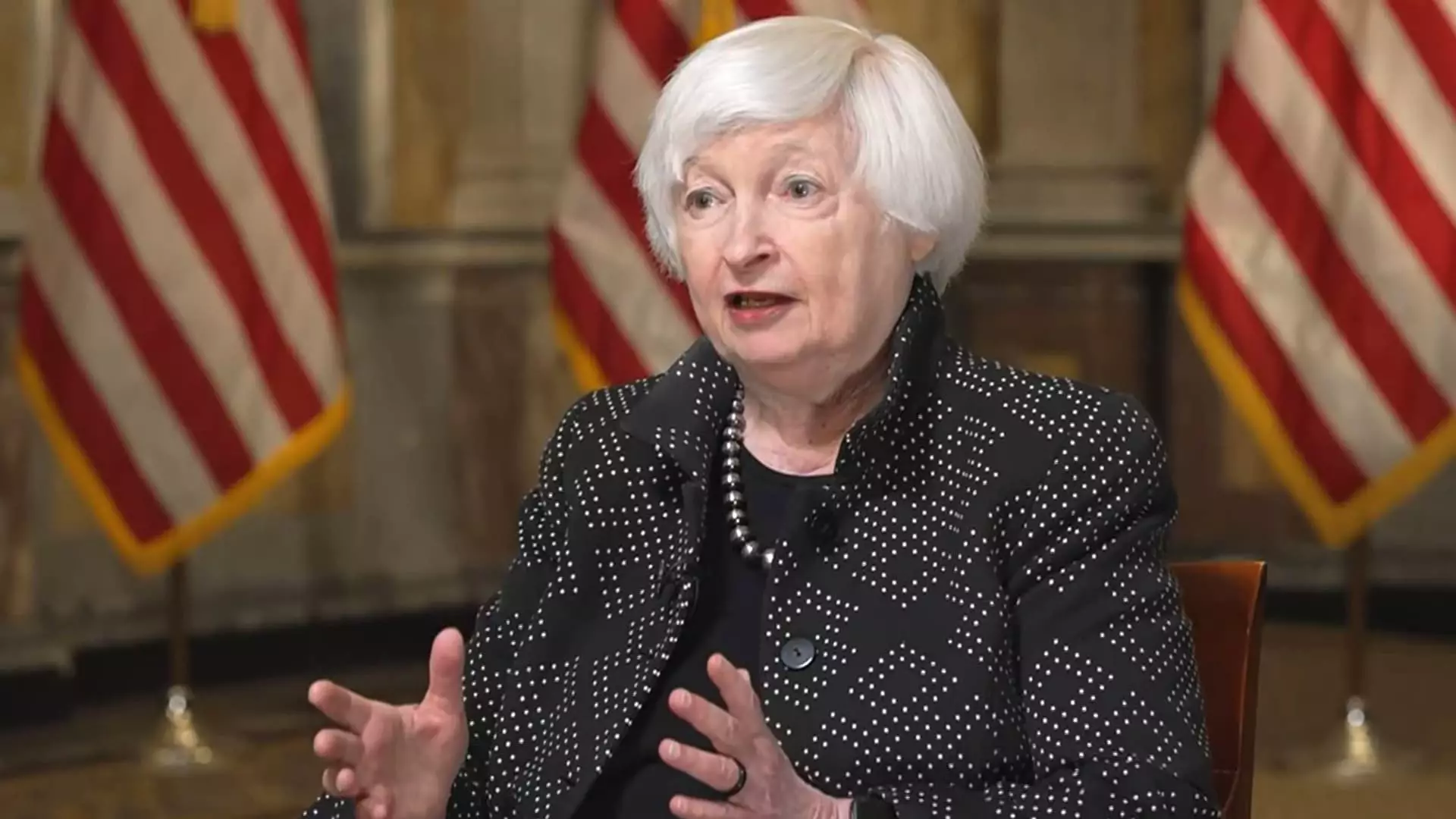In a revealing exit interview, Treasury Secretary Janet Yellen reflected on the economic landscape shaped during President Joe Biden’s administration. Acknowledging that stimulus measures enacted to combat the aftermath of the Covid-19 pandemic may have contributed “a little bit” to the inflation that the country faces, Yellen clarified that the fundamental drivers of rising prices primarily stemmed from supply-side issues entangled with the pandemic itself. This admission sheds light on the complex relationship between fiscal policies aimed at recovery and the adverse economic outcomes that can arise even from well-intentioned measures.
Yellen’s assertion that the inflation crisis experienced post-stimulus was largely a “supply-side phenomenon” hints at broader economic disruptions. The pandemic not only affected consumer behavior but also wreaked havoc on supply chains, leading to significant shortages in essential goods. These supply chain difficulties have proven to be a persistent challenge, underscoring the need for more resilient infrastructure in times of global crises.
Despite acknowledging some inflationary implications of the $1.9 trillion Covid relief package, Yellen staunchly defended the urgency of such spending. With the pandemic at its peak during Biden’s initial months in office, the necessity to alleviate public suffering outweighed concerns about long-term fiscal repercussions. Federal assistance played a crucial role in stabilizing an economy grappling with unprecedented unemployment rates and widespread uncertainty.
Yellen’s perspective invites a deeper examination of the ethical obligations of government in emergencies. Should the immediate needs of citizens take precedence over potential inflationary risks? The answer may vary depending on political and economic philosophies, but Yellen’s stance strongly favors immediate relief as a moral imperative during a health crisis that resulted in untold suffering for countless Americans.
In her remarks, Yellen also confronted the narrative surrounding U.S. deficits that ballooned to $1.8 trillion during the last fiscal year. She pointed out that, contrary to the current administration’s prioritization of deficit reduction, discretionary spending remains at historically low levels. This assertion invites a critical examination of fiscal responsibility and challenges the notion that increased spending alone is to blame for rising deficits.
Moreover, she highlighted how rising interest rates have impacted the costs associated with servicing the national debt, complicating the conversation about fiscal sustainability. Rather than merely pointing fingers at spending habits, one must consider the intricate dynamics of economic management in a volatile environment evidently exacerbated by global events.
As Yellen prepares to hand over the reins to Scott Bessent, her remarks encapsulate the multifaceted challenges facing the Treasury. While she expressed cautious skepticism about proposals for sweeping government spending cuts, particularly amidst calls for increased defense spending and other mandatory programs, her philosophy on governance appears to prioritize a nuanced understanding of fiscal policy’s impact on societal welfare.
Her legacy at the Treasury will likely prompt ongoing debates about the balance of immediate economic relief versus long-term financial stability. As the Biden administration transitions, policymakers will need to consider the lessons drawn from Covid-19’s economic fallout and work towards strategies that ensure resilience for future challenges while navigating the complex landscape of fiscal responsibility.


Leave a Reply